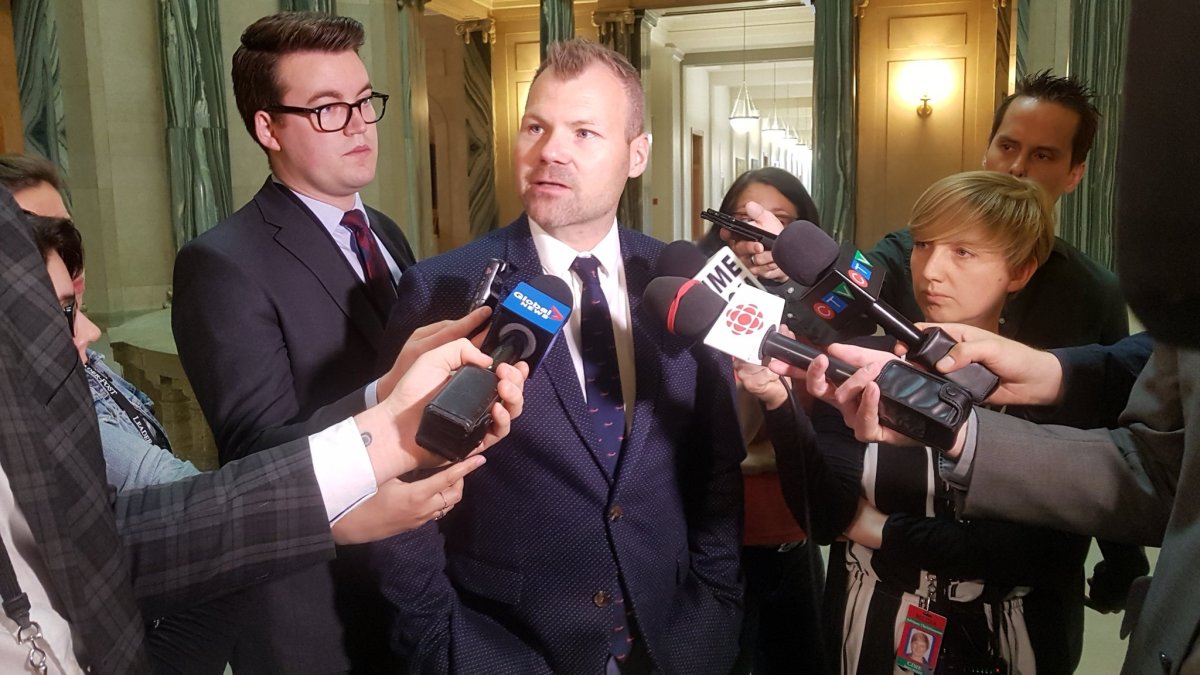Environment Minister Dustin Duncan says Saskatchewan should be eligible for previously denied infrastructure dollars through Canada’s Low-Carbon Economy Fund. Now, the province has submitted applications for 11 projects aimed at lowering emissions in the hope of receiving that money.

Saskatchewan would have received approximately $62 million through the fund had the province signed onto the Pan-Canadian Framework on Clean Growth and Climate Change. Saskatchewan did not sign on due to page 50 of the document, highlighting the importance of carbon pricing.
Duncan said Saskatchewan’s application for the 11 projects, valued at $200 million, should be eligible for $62 million in federal funding despite differences with the federal government.
“I think we really have to start asking ourselves is this really about the entire climate change plan for the country? The Pan-Canadian Framework, the Vancouver Declaration before that, is this really about reducing emissions or not?” Duncan said.
“If it’s about reducing emissions, Saskatchewan should be eligible just like any other province even though we specifically disagreed with the approach the federal government took.”
READ MORE: Saskatchewan to lose $62.5 million if climate agreement is not signed
It is estimated the projects, if completed, would remove 188 million tonnes of carbon dioxide from the atmosphere during its lifespan.
Proposed projects include hooking up some First Nations communities to natural gas lines through SaskEnergy instead of using diesel generators and installing solar panels on 12 SaskWater facilities.

Get breaking National news
Duncan added that despite the public differences on carbon pricing, including taking Ottawa to court over a potential carbon tax, the two environment ministries still work together. Officials from Ottawa are expected in Saskatchewan this week to help work on emission modelling for the province.
READ MORE: Saskatchewan files constitutional reference case over carbon tax
Duncan does not believe the upcoming court proceedings will have any impact on these applications.
In a statement, federal Environment Minister Catherine McKenna’s press secretary Caroline Thériault said the following:
Saskatchewan was the only province to not join Canada in the pan-Canadian plan to tackle climate change. That was their choice. The result is they gave up their portion of the Low Carbon Leaders Fund. That $62M is now in the Low Carbon Challenge Fund. The Challenge Fund is highly competitive. We are pleased to have received more than 600 projects across the country. Each project, including those located in Saskatchewan, will be evaluated fairly on their merits – but there is no guarantee that the province of Saskatchewan will see their projects approved – that opportunity has passed.
Previously, the federal ministry said the $62 million previously set aside for Saskatchewan would move into a Challenge Fund. This is money that will be available for third parties, like businesses or municipalities, to apply for funding for their own green infrastructure projects.
Across the aisle, environment critic David Forbes said that if approved these projects would be great news for Saskatchewan, such as an energy efficient home retrofit program. However, he has concerns about the chances of the applications.
“If we’re held back because the government hasn’t submitted a plan, we’ve seen Prairie Resilience, and as I’ve said many times there’s that chart where there’s ‘to be determined’ really shows the government hasn’t done its homework,” Forbes said.
- TD Bank moves to seize home of Russian-Canadian jailed for smuggling tech to Kremlin
- ‘Alarming trend’ of more international students claiming asylum: minister
- NBC, CBS polls show Harris gaining ground as election focus shifts to Trump
- After controversial directive, Quebec now says anglophones have right to English health services
READ MORE: Sask. environment minister unveils carbon tax free climate strategy
The Prairie Resilience climate change plan has had much of the specific emission reduction and mitigation targets for industry set as TBD since it was unveiled late last year.
Duncan said some decisions are currently before cabinet, and further announcements about the specifics will be made throughout the spring and summer.
The federal government will begin evaluating provincial and territorial climate change strategies in September. Ottawa has said that jurisdictions that do not meet federal standards will be subject to the federal carbon price strategy.
A full list projects Saskatchewan is applying to receive federal funding for.








Comments